Sangeet Natak Akademi Fellowship
| Sangeet Natak Academy Fellowship | |
|---|---|
| Award for individual contributions to Performing arts | |
| Awarded for | Award for the performing arts in India |
| Sponsored by | Sangeet Natak Academy |
| Reward(s) | ₹3 lakh (equivalent to ₹4.5 lakh or US$5,400 in 2023) |
| First awarded | 1954 |
| Last awarded | 2015 |
| Highlights | |
| Total awarded | 144 |
| First winner | |
| Last winner | C. V. Chandrasekhar |
| Website | http://sangeetnatak.gov.in/ |
The Sangeet Natak Academy fellowship, officially known as Sangeet Natak Academy Ratna Sadasya, is an Indian honour for the performing arts presented by Sangeet Natak Academy. It is "the most prestigious and rare honour" conferred by the Academy and is restricted to 40 individuals at any given time.
Background
In 1945, The Asiatic Society of Bengal submitted a proposal to establish a National Cultural Trust consisting of three academies: an Academy of Music, Dance, and Drama, an Academy of Letters, and an Academy of Art and Architecture. The proposal was reconsidered in the Conference on Art held in Kolkata in 1949, and two conferences, the Conference on Letters, and the Conference on Dance, Drama, and Music, were held in New Delhi in 1951. All three conferences were organized by the Government of India and recommended the establishment of three national academies: an Academy of Music, Dance, and Drama (Sangeet Natak Akademi), an Academy of Letters (Sahitya Akademi), and an Academy of Art (Lalit Kala Academy).[1]
The Sangeet Natak Academy, established on 31 May 1952 by a resolution of the Ministry of Human Resource Development (then the Ministry of Education), Government of India, headed by Maulana Abul Kalam Azad,[1] is India's National Academy for Music, Dance, and Drama. The Akademi was officially inaugurated on 28 January 1953 by the first President of India, Rajendra Prasad and P. V. Rajamannar was appointed as its first Chairman.[2] The first members of the Executive Board of the Akademi consisted of Maharaja Sri Sir Jayachamarajendra Wadiyar Bahadur, T. L. Venkatarama Aiyar, S. N. Mozumdar, N. R. Ray, Dharma Vira, A.K. Ghosh, J. C. Mathur, and A. V. Venkateswaran.[3] Other two institutes were established later; the Sahitya Akademi was inaugurated on 12 March 1954 and the Lalit Kala Akademi was inaugurated on 5 August 1954.[4][5] Later, on 11 September 1961, it was reorganized as a society and registered under the Societies Registration Act, 1860. Though the Sangeet Natak Akademi functions as an autonomous organization of the Ministry of Culture, its programmes are completely funded by the Government.[2]
The Sangeet Natak Akademi is defined as "the apex body of the performing arts" in the country and primarily focuses on "preserving and promoting the vast intangible heritage of India's diverse culture expressed in the forms of music, dance and drama". The Akademi has also established various institutions in the fields of performing arts: the National School of Drama in New Delhi in 1959, the Jawaharlal Nehru Manipur Dance Academy in Imphal and the National Institute of Kathak Dance in New Delhi in 1964, and the Koodiyattam Kendra in Thiruvananthapuram in 1990.[2][6] Since 1965, the Akademi also publishes a quarterly journal, Sangeet Natak.[7]
Description
The Sangeet Natak Akademi Fellowship is conferred without distinction of nationality, race, caste, religion, creed, or sex. The criteria restricts any person below the age of 50 to ordinarily be considered for the honour, although a minimum age of 35 is required.[8] Persons who are already deceased do not qualify; if an honoree dies before the honour is conferred, however, the honour will be assigned posthumously.[8] The criteria also excludes any institution along with the members of the General Council of the Akademi from consideration. The fellowship does not refer to any specific work or achievement of an artist but to the "significant and lasting contribution on a sustained basis over a period of time". The recommendations are received from the current fellows along with the members of the General Council of the Akademi.[8]
The fellowship was established in 1954 and the first elected fellows were Carnatic music vocalist Ariyakudi Ramanuja Iyengar, Veena player Karaikudi Sambasiva Aiyer, and film and theatre actor Prithviraj Kapoor. As of 2015[update], the fellowship has been conferred upon 144 individuals, including 29 dancers, 31 theater performers, 75 musicians, and 9 individuals awarded for their overall contributions in all three fields. Since its inception, the honour has been bestowed upon 26 female artists and, in 1958, a Hindustani classical vocalist, belonging to the Bhendibazaar gharana, Anjanibai Malpekar became the first woman fellow of the Akademi. A French national and musicologist Alain Daniélou is the only non-Indian national awarded with the fellowship.[9]
As per the constitutional provision under Rule 12 (vi) of the Rules and Regulations of the Akademi, the number of fellows is restricted to 30. On 25 March 2003, the General Council of the Akademi recommended restricting the number of fellows to 40 living persons and a total of 60 at any given time. However, the recommendation is not yet approved by the Ministry. As of 2016[update], there are 36 Fellows of the Sangeet Natak Akademi. Each recipient is awarded with a cash prize of ₹3 lakh (equivalent to ₹4.5 lakh or US$5,400 in 2023), an Angavastram (Shawl), and a Tamrapatra (citation plaque) given under the seal of Akademi and signature of its Chairman.[8][9][10] The most recent recipient of the fellowship is Bharatanatyam dancer C. V. Chandrasekhar who was awarded for the year 2015.[10]
List of fellows
| Field | Number of recipients |
|---|---|
| Dance | |
| Music | |
| Theater | |
| Overall Contribution/Scholarship |
# Indicates a current fellow
|
|---|
| Year | Image | Recipient | Field(s) |
|---|---|---|---|
| 1954 | – | Ariyakudi Ramanuja Iyengar | Music |
| 1954 | – | Karaikudi Sambasiva Iyer | Music |
| 1954 | 
|
Prithviraj Kapoor | Theatre |
| 1958 | – | Anjanibai Malpekar | Music |
| 1962 | – | Gopeshwar Banerjee | Music |
| 1962 | – | D. Annaswami Bhagavathar | Music |
| 1962 | 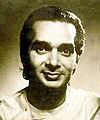
|
Uday Shankar | Dance |
| 1962 | – | Papanasam Sivan | Music |
| 1963 | – | Swami Prajnanananda | Music |
| 1963 | – | Shrikrishna Narayan Ratanjankar | Music |
| 1963 | – | Pichu Sambamoorthi | Music |
| 1963 | – | Mama Warerkar | Theatre |
| 1964 | – | T. L. Venkatarama Iyer | Music |
| 1964 | – | C. Saraswathi Bai | Music |
| 1964 | – | Birendra Kishore Roy Choudhury | Music |
| 1964 | – | B. R. Deodhar | Music |
| 1964 | – | V. Raghavan | Music |
| 1964 | – | P. V. Rajamannar | Theatre |
| 1965 | – | Vinayak Narayan Patwardhan | Music |
| 1965 | – | Ganesh Hari Ranade | Music |
| 1965 | Dilipkumar Roy | Music | |
| 1965 | – | Jaideva Singh | Music |
| 1965 | – | D. G. Vyas | Music |
| 1966 | – | Ashutosh Bhattacharya | Music |
| 1966 | – | E. Krishna Iyer | Overall Contribution/Scholarship |
| 1966 | Sombhu Mitra | Theatre | |
| 1966 | 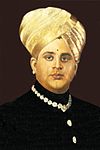
|
Jayachamarajendra Wadiyar | Music |
| 1967 | Ebrahim Alkazi# | Theatre | |
| 1967 | 
|
Rukmini Devi Arundale | Dance |
| 1967 | Musiri Subramania Iyer | Music | |
| 1967 | 
|
Bade Ghulam Ali Khan | Music |
| 1967 | – | P. K. Kunju Kurup | Dance |
| 1967 | – | Shambhu Maharaj | Dance |
| 1967 | – | V. Satyanarayana Sarma | Dance |
| 1967 | – | Adya Rangacharya 'Shriranga' | Theatre |
| 1968 | – | Kali Charan Patnaik | Overall Contribution/Scholarship |
| 1970 | – | K. C. D. Brahaspati | Music |
| 1970 | 
|
Kapila Vatsyayan# | Dance |
| 1970 | – | Dilip Chandra Vedi | Music |
| 1972 | 
|
Tarapada Chakraborty | Music |
| 1972 | – | Krishnarao Phulambrikar | Music |
| 1972 | – | Rallapalli Ananta Krishna Sharma | Music |
| 1973 | K. Shivaram Karanth | Theatre | |
| 1974 | – | Kamaladevi Chattopadhyay | Theatre |
| 1974 | – | Jnan Prakash Ghosh | Music |
| 1974 | 
|
M. S. Subbulakshmi | Music |
| 1975 | T. Balasaraswati | Dance | |
| 1975 | 
|
Zubin Mehta# | Music |
| 1975 | – | Rasiklal Parikh | Theatre |
| 1975 | 
|
Ravi Shankar | Music |
| 1975 | – | Embar S. Vijayaraghavachariar | Music |
| 1976 | 
|
Santidev Ghosh | Overall Contribution/Scholarship |
| 1976 | 
|
Semmangudi Srinivasa Iyer | Music |
| 1977 | – | Hirjibhai Rustomji Doctor | Music |
| 1978 | – | Tinuvengadu Subramania Pillai | Music |
| 1978 | – | B. Puttaswamayya | Theatre |
| 1979 | 
|
P. L. Deshpande | Theatre |
| 1979 | – | D. T. Joshi | Music |
| 1979 | – | Sumati Mutatkar | Music |
| 1979 | – | T. P. Kuppiah Pillai | Dance |
| 1980 | – | V. K. Narayana Menon | Overall Contribution/Scholarship |
| 1982 | 
|
Mani Madhava Chakyar | Dance |
| 1982 | 
|
Mallikarjun Mansur | Music |
| 1984 | – | M. Kirupanandawari | Music |
| 1984 | – | Chandravadan Mehta | Theatre |
| 1984 | 
|
Siyaram Tiwari | Music |
| 1986 | – | V. V. Swarna Venkatesa Deekshithar | Music |
| 1986 | – | Komal Kothari | Music |
| 1986 | – | S. Ramanathan | Music |
| 1986 | 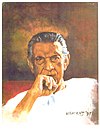
|
Satyajit Ray | Theatre |
| 1989 | 
|
Lata Mangeshkar# | Music |
| 1990 | Utpal Dutt | Theatre | |
| 1990 | 
|
Ram Gopal | Dance |
| 1991 | 
|
Alain Daniélou | Music |
| 1991 | – | Kelucharan Mohapatra | Dance |
| 1991 | – | T. S. Parthasarathy | Overall Contribution/Scholarship |
| 1992 | 
|
Ali Akbar Khan | Music |
| 1992 | 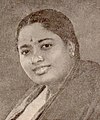
|
D. K. Pattammal | Music |
| 1992 | – | Prem Lata Sharma | Music |
| 1993 | 
|
Girish Karnad# | Theatre |
| 1993 | 
|
Mrinalini Sarabhai | Dance |
| 1994 | 
|
Bismillah Khan | Music |
| 1994 | 
|
Yehudi Menuhin | Music |
| 1994 | – | Maheswar Neog | Overall Contribution/Scholarship |
| 1995 | Vilayat Khan | Music | |
| 1996 | 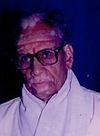
|
Ammannur Madhava Chakyar | Dance |
| 1996 | 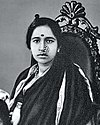
|
Gangubai Hangal | Music |
| 1996 | – | Habib Tanvir | Theatre |
| 1997 | 
|
Badal Sarkar | Theatre |
| 1998 | 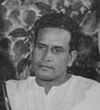
|
Bhimsen Joshi | Music |
| 1998 | 
|
Birju Maharaj# | Dance |
| 1998 | – | K. P. Kittappa Pillai | Dance |
| 1998 | 
|
Vijay Tendulkar | Theatre |
| 2001 | 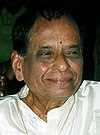
|
M. Balamuralikrishna | Music |
| 2001 | B. V. Karanth | Theatre | |
| 2001 | 
|
Vempati Chinna Satyam | Dance |
| 2002 | – | Shanno Khurana# | Music |
| 2002 | 
|
Kavalam Narayana Panicker | Theatre |
| 2004 | – | Chandralekha | Dance |
| 2004 | – | Annapurna Devi# | Music |
| 2004 | – | Bindhyabasini Devi | Other performing arts[a] |
| 2004 | 
|
Ramankutty Nair | Dance |
| 2004 | Zohra Sehgal | Theatre | |
| 2004 | – | Tapas Sen | Theatre |
| 2006 | – | Rohini Bhate | Dance |
| 2006 | 
|
T. N. Krishnan# | Music |
| 2006 | – | Kishan Maharaj | Music |
| 2006 | – | Gursharan Singh | Theatre |
| 2006 | – | N. Khelchandra Singh | Dance |
| 2007 | – | Sushil Kumar Saxena | Overall Contribution/Scholarship |
| 2008 | – | Khaled Choudhury | Theatre |
| 2008 | 
|
Sitara Devi | Dance |
| 2008 | 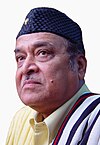
|
Bhupen Hazarika | Music |
| 2008 | – | R. C. Mehta | Music |
| 2009 | File:Kishori Amankar.jpg | Kishori Amonkar# | Music |
| 2009 | 
|
Jasraj# | Music |
| 2009 | Lalgudi Jayaraman | Music | |
| 2009 | 
|
Yamini Krishnamurthy# | Dance |
| 2009 | 
|
Shriram Lagoo# | Theatre |
| 2009 | – | Kamlesh Dutt Tripathi# | Theatre |
| 2010 | 
|
Girija Devi | Music |
| 2010 | – | T. K. Murthy# | Music |
| 2010 | – | Nataraja Ramakrishna | Dance |
| 2011 | 
|
M. Chandrasekaran# | Music |
| 2011 | 
|
Hariprasad Chaurasia# | Music |
| 2011 | 
|
Kalamandalam Gopi# | Dance |
| 2011 | 
|
Chandrashekhara Kambara# | Theatre |
| 2011 | – | Heisnam Kanhailal | Theatre |
| 2011 | – | Mukund Lath# | Overall Contribution/Scholarship |
| 2011 | 
|
Shivkumar Sharma# | Music |
| 2011 | 
|
Rajkumar Singhajit Singh# | Dance |
| 2011 | 
|
Umayalpuram K. Sivaraman# | Music |
| 2011 | 
|
Padma Subrahmanyam# | Dance |
| 2012 | – | N. Rajam# | Music |
| 2012 | – | Ratan Thiyam# | Theatre |
| 2012 | 
|
T. H. Vinayakram# | Music |
| 2013 | – | Mahesh Elkunchwar# | Theatre |
| 2013 | 
|
Kanak Rele# | Dance |
| 2013 | – | R Sathyanarayana# | Dance |
| 2014 | 
|
Tulsidas Borkar# | Music |
| 2014 | – | S. R. Janakiraman# | Music |
| 2014 | – | Vijay Kumar Kichlu# | Music |
| 2014 | 
|
M. S. Sathyu# | Theatre |
| 2015 | – | C. V. Chandrasekhar# | Dance |
| 2016 | – | Arvind Parikh# | Music |
| 2016 | – | R. Vedavalli# | Music |
| 2016 | – | Ram Gopal Bajaj# | Theatre |
| 2016 | 
|
Sunil Kothari# | Overall Contribution/Scholarship |
See also
Explanatory notes
- ^ Other performing arts include Traditional/Folk/Tribal/Dance/Music/Theatre and Puppetry
References
- ^ a b "National Academies: Sangeet Natak Akademi". National Portal of India. 9 December 2012. Retrieved 17 January 2017.
- ^ a b c "Sangeet Natak Akademi: Introduction". New Delhi: Sangeet Natak Akademi. Retrieved 4 January 2017.
- ^ "Sangeet Natak Akademi: Constitution". New Delhi: Sangeet Natak Akademi. Retrieved 5 January 2017.
- ^ "About Sahitya Akademi". Sahitya Akademi. Retrieved 2 January 2017.
- ^ "Lalit Kala Akademi: History". Lalit Kala Akademi. Retrieved 2 January 2017.
- ^ "Kuttiyattam Kendra". Kuttiyattam Kendra. Retrieved 5 January 2017.
- ^ Post, Jennifer (2013). Ethnomusicology: A Research and Information Guide. Taylor & Francis. p. 119. ISBN 978-1-136-70518-2.
- ^ a b c d "Sangeet Natak Akademi: Guidelines for SNA Awards". New Delhi: Sangeet Natak Akademi. Retrieved 5 January 2017.
- ^ a b c d "Sangeet Natak Akademi Fellow". New Delhi: Sangeet Natak Akademi. Retrieved 4 January 2017.
- ^ a b Acharya, Helen (23 April 2016). "Declaration of Sangeet Natak Akademi Fellowships (Akademi Ratna) and Sangeet Natak Akademi Awards (Akademi Puraskar) for the Year 2015" (PDF) (Press release). New Delhi: Sangeet Natak Akademi. Retrieved 4 January 2017.

